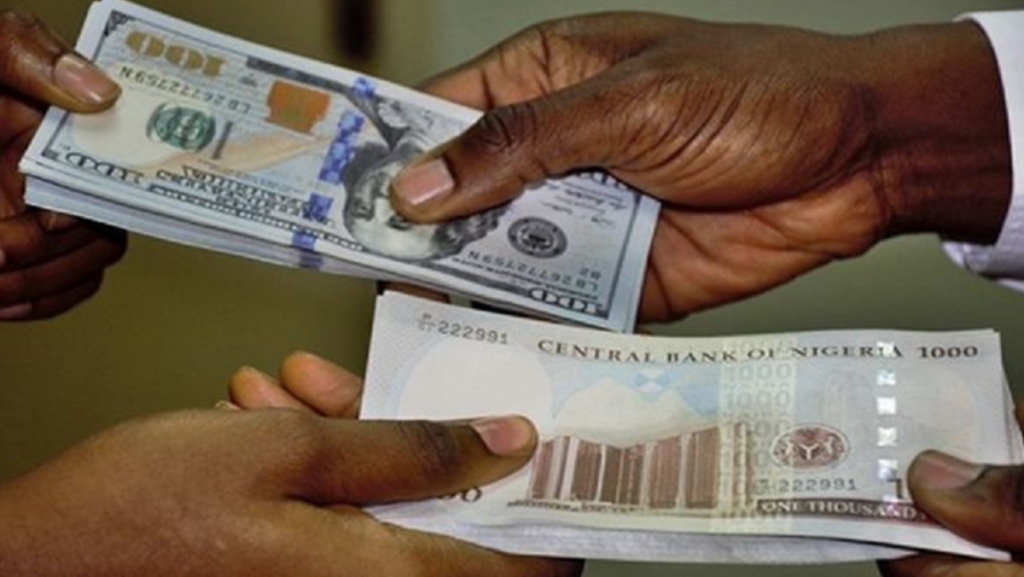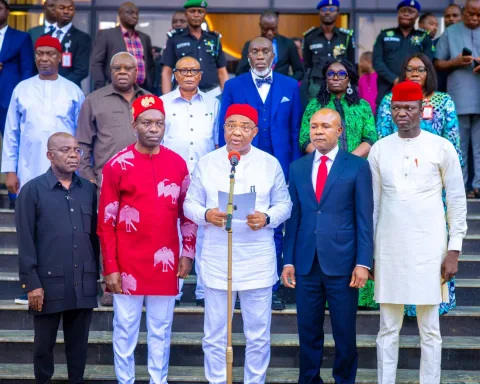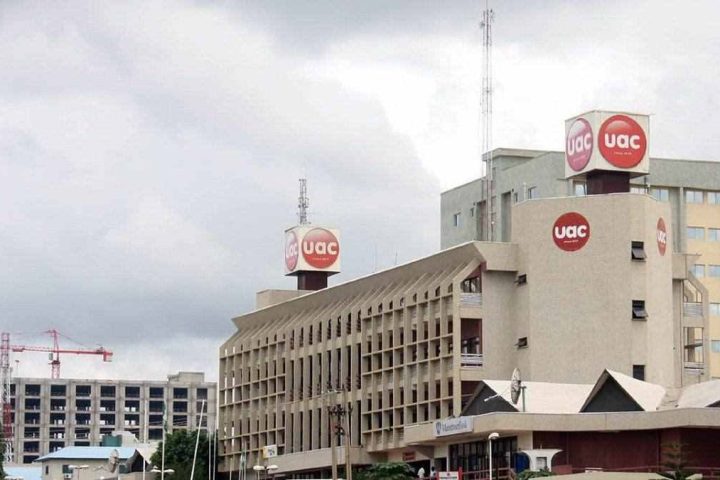The Central Bank of Nigeria’s (CBN) Electronic Foreign Exchange Matching System (EFEMS) has created ripples in the forex market, driving increased demand for the naira in the parallel market. Experts say the system’s transparency has forced currency speculators and illicit traders to shift their activities to the black market, pushing up demand for the local currency.
“People who cannot operate within the EFEMS now go to the parallel market to meet their needs. This explains the increased demand for the naira in the black market,” said Ike Ibeabuchi, an emerging markets analyst.
Join our WhatsApp ChannelEFEMS, which started on December 2, 2024, uses the Bloomberg BMatch system, requiring banks to comply with stricter foreign exchange (FX) trading regulations. This approach aims to promote transparency and reduce the influence of speculators in Nigeria’s forex market.
According to Omolara Duke, director of the CBN’s financial markets department, the system ensures “transparent, fair, and efficient FX trading” while also enforcing compliance with CBN rules. The minimum trading amount is set at $100,000, with additional trades in $50,000 increments.
How EFEMS Affects the Parallel Market
The EFEMS system aims to limit the dominance of unregulated forex trading, but this has had unintended consequences. Legitimate buyers, including small business owners, who cannot meet EFEMS requirements, are now turning to the parallel market.
Adamu Aliero, a Bureau De Change (BDC) operator, explained, “Some speculators and small traders have now moved to the parallel market because they cannot meet the strict terms of EFEMS. They feel it’s safer to deal in the black market where fewer questions are asked.”
Speculators, illicit traders, and others who operate outside formal banking systems have also been driven to the black market. These operators prefer the anonymity of the black market, as EFEMS tracks transactions more closely.
Analysts argue that while EFEMS promotes a cleaner forex system, its impact on demand for the naira in the parallel market cannot be ignored.
Naira Gains in Parallel Market But Faces Challenges
The naira has seen significant fluctuations since the launch of EFEMS. On December 6, 2024, the naira appreciated to N1,515 per dollar in the parallel market, driven by traders offloading dollars. However, this gain was short-lived, as the naira traded at N1,680 per dollar on December 10.
The official market also experienced changes. The naira strengthened to N1,532 per dollar, improving from N1,545 the day before, according to CBN data. This shift reflects the impact of EFEMS, which has altered the way the forex market operates.
Muda Yusuf, CEO of the Centre for the Promotion of Private Enterprise (CPPE), said, “The CBN’s measures are working, but challenges remain. Speculators are adapting, and as long as there are loopholes, they will be exploited.”
He added that while EFEMS reduces opportunities for manipulation, speculators will continue to seek out the parallel market.
READ ALSO: What Naira’s Continuous Depreciation Means For Nigerians This Festive Season
CBN’s Approach to FX Market Reform
CBN Governor Olayemi Cardoso announced that Nigeria’s foreign exchange market had seen significant growth in 2024. Average daily turnover in the Nigerian Autonomous Foreign Exchange Market rose by 226%, while foreign portfolio inflows jumped 72% compared to 2023.
With foreign exchange reserves climbing from $32 billion in May 2023 to $40 billion by December 2024, Cardoso said, “This represents the equivalent of eight months of import cover and is the highest level of reserves in nearly three years.”
While these improvements are positive, analysts say they have come with increased scrutiny. Players accustomed to informal dealings now face stricter measures, including EFEMS’ tracking of large foreign exchange transactions.
“EFEMS tracks transactions in a way the previous system never did,” said financial analyst Ayokunle Olubunmi. “This transparency is good for the economy, but it pushes those who want to avoid oversight to the parallel market, increasing naira demand in that space.”
Supply Shortfall Worsens Naira’s Position
While the EFEMS system has reduced manipulation, analysts argue that supply issues remain the biggest challenge for Nigeria’s forex market. Ayokunle Olubunmi highlighted that despite the crackdown on illicit traders, the market still faces a major supply imbalance.
“If there were enough dollars in circulation, the influence of the black market would diminish significantly,” he said. “Back then, nobody cared about the black market because the official market was sufficient.”
Today, however, supply struggles persist. The shortage of dollars means more people turn to the parallel market, increasing demand for the naira. This demand surge has made the naira more volatile in recent weeks.
The CBN has responded by increasing its intervention in the FX market. However, experts caution that intervention alone is not a long-term solution. Without a steady supply of dollars, the naira’s position in the parallel market will remain unstable.
What Next for the Naira?
The CBN’s focus on transparency and efficiency through EFEMS has brought mixed results. While official forex trading is now more transparent, the naira faces fresh challenges in the parallel market.
BDC operators argue that unless documentation barriers for smaller buyers are eased, demand in the black market will continue to rise. The interplay between official and parallel markets complicates the CBN’s goal of achieving exchange rate convergence.
Yusuf from CPPE believes further reforms are needed. “The black market operates without regulation, and people will always turn to it as long as it exists in this form. It’s a problem for the entire system,” he said.
With EFEMS in place, the CBN faces the tough task of balancing regulation and market accessibility. For now, however, it seems the naira’s demand in the black market will remain high.
Emmanuel Ochayi is a journalist. He is a graduate of the University of Lagos, School of first choice and the nations pride. Emmanuel is keen on exploring writing angles in different areas, including Business, climate change, politics, Education, and others.
- Emmanuel Ochayihttps://www.primebusiness.africa/author/ochayi/
- Emmanuel Ochayihttps://www.primebusiness.africa/author/ochayi/
- Emmanuel Ochayihttps://www.primebusiness.africa/author/ochayi/
- Emmanuel Ochayihttps://www.primebusiness.africa/author/ochayi/



















Follow Us